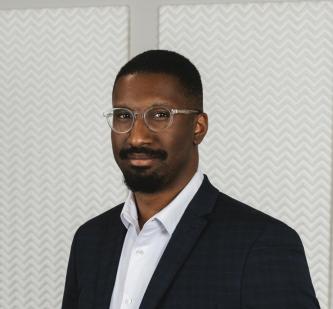
Public Sector Finance Transformation: Key Takeaways from CIPFA’s Annual Conference

I was proud to attend Public Finance Live this year. CIPFA is the only public sector Finance qualification in the world, and as such the professionals that make up its membership body are at the forefront of leading change that impacts all of our lives. Unsurprisingly, the underlying question at this year’s conference was “How can we solve the issues faced by the public sector in these challenging economic times?”
We all know that question is not easy to answer, and unfortunately my insights will not solve it either, but despite this adversity the sessions were packed with inspiration and topics that are vital building blocks in finding that answer.
Sessions from Tony Travers on how to save the public sector were insightful and engaging, and it was brilliant to hear the future vision for CIPFA from Chief Executive, Owen Mapley and President, Carol Culley. From the many conversations I held with Finance Directors over the conference, it has certainly been a tough few year but with a new Government that is renewed energy and a glimmer of hope.
Reflecting on the conference, a few things stuck with me, and I’d like to offer my opinion on:
AI
AI is currently a major trending topic, and hearing from experts about its potential to enhance efficiency, along with the environmental costs associated with it, was enlightening. AI will clearly play a role in our personal and professional lives moving forwards, and observing how the public sector incorporates it will be fascinating.
It has the potential to help drive efficiencies and improve service quality, but it also comes with risk and getting the balance of this right in the public sector is vital. Current and future leaders will need to evolve their skills and knowledge to incorporate AI their organisations and we all need to lean into the conversation on how it may change the nature and shape of certain roles.
AI won’t necessarily replace jobs but changing them and how we support people on that journey is vital to maintain engagement and productivity. AI gives the chance to automate and streamline services that free up time to spend thinking of new ideas to help innovate the public sector. At the same time, public data will need safeguarding and I left the conference questioning how best to do this whilst engaging emerging AI products. Caution is needed!
How can the public sector learn from the private sector?
From my experience of recruiting interim finance professionals into local government, the public and private sector have always been very separate. On the odd occasion you have seen someone transition between the two. For those who have gone straight from private to public, they usually have a lot of previous public sector experience.
There are things to learn by both sides in all aspects of business, so I was excited to hear about CIPFA’s plans to partner with ICAEW. Owen Mapley spoke of how this would give chances for members of both accounting bodies to learn from each other, it should also give an easier route for ICAEW members to work in the public sector on both a permanent and interim basis. Owen himself has worked in Local Government, Central Government and in banking, so is a clear example that candidates can make the switch.
We as recruiters have a role to play in supporting people to make this transition and helping organisations to recruit people with diverse skills and experiences to help them innovate and evolve. I’d be interested to hear from others on whether they feel CIPFA’s new partnership with ICAEW will be start of making this more of a reality?
Getting young people into public sector finance
It was amazing to see the CIPFA graduates who had newly qualified or CIPFA students that were at the start of their journeys at the conference. One of the questions of the conference was still How do we attract young people to join CIPFA?
In a time where people are more socially conscious at a younger age, working in the public sector should be an attractive career path for young people. Working within the public sector has a direct benefit to local communities which is a great thing to able to say, so why does it feel like public sector isn’t getting enough young talent? A topic we’ve previously commented on which you can read here.
As an Accountancy graduate myself, I didn’t hear about CIPFA and the amazing work they do until I started working in recruitment. If I had known about the pathway in public sector finance, there’s a good chance I’d have explored it. The problem CIPFA has is a lack of visibility to the younger generations like myself, which is easily fixable by showing the impact they can make on society and communities. I’d love to be involved in helping this to happen.
If you’d like further reading on this then I’d advise you to take a look at the article wrote by my colleague Chantelle Wooldridge.
Conclusion
So how can we solve the issues faced by the public sector in these challenging economic times?
Sadly, I don’t have the answer to that question. It is definitely one that Sir Keir Starmer and his government will have to address over their first term. There is already talk of multi-year settlements instead of the one-year cycle that has blighted the ability to plan for public bodies. Equally, one of the new Governments five missions is to boost economic growth and reduce inequality, and the early signs on this are positive. The noises coming out from the Combined Authority Mayor reception suggest devolution of powers and services to replicate the success seen in Greater Manchester, with further deals to follow in other areas.
It is early days under the new government, but I remain confident and optimistic after my two days at the CIPFA conference that we have talented and passionate finance professionals in all tiers of public finance and coupled with the right policies, we will start to see progress against the question of “How can we solve the issues faced by the public sector in these challenging economic times?”
Similar blogs
Sign up to newsletter
By submitting your details you agree to our T&Cs




